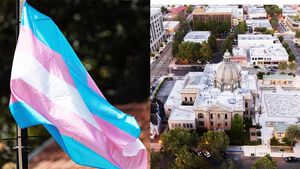Brazilian scientists announced that they will begin testing a new HIV vaccine on monkeys later this year. The vaccine works by maintaining a viral load so low that will keep an HIV-positive person from developing an immunodieficiency and transmitting the virus to an uninfected person. Even though the vaccine will not totally rid the virus from an infected patient, it is expected to stop transmission between an infected and uninfected person, and may also lead to further understanding of new ways to stall HIV's progression in people who are positive.
The HIVBr18 vaccine has been 12 years in the making by a team led by Edecio Cunha Neto, Jorge Kalil, and Simone Fonseca from the medicine faculty of the University of Sao Paulo, Brazil. According to
São Paulo State Research Foundation (which also is funding the study), a colony of rhesus monkeys will be used for the clinical trial because not only do they have similar immune systems as humans, but they're susceptible to Simian Immunology Virus (SIV), which is believed to have been the catalyst of HIV when it first crossed the species plateu.
"Our goal is to test various immunization methods to select the one capable of inducing a stronger immunological response and thus be able to test it on humans," Neto said, according to the
Research Foundation.
The monkey trials are expected to last two years and once it is over, with adequete funding, scientists hope to begin the first clinical trials of HIVBr18 in humans.












































































